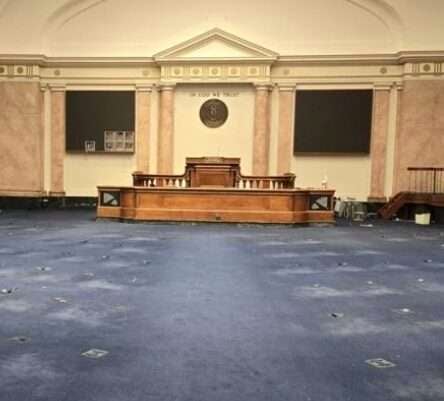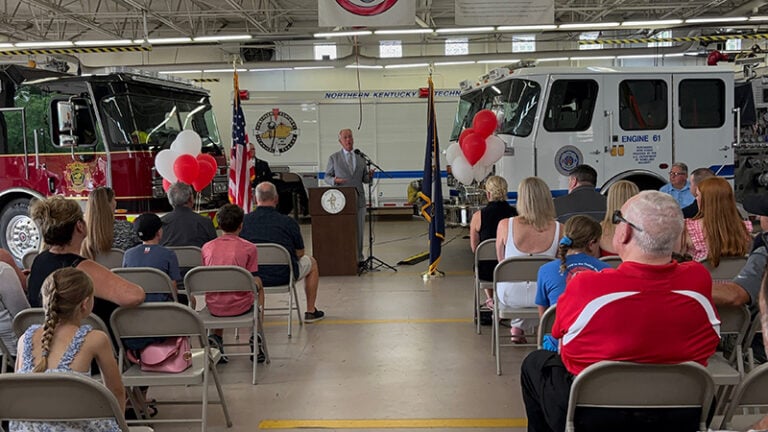By Paul A. Tenkotte, PhD
Special to NKyTribune
There are many memorable scenes from the movie Ferris Bueller’s Day Off. One in particular strikes my fancy. Former speechwriter for both Presidents Nixon and Ford, Ben Stein plays a bit part as an economics teacher—droning on and on in a monotone voice—trying to use the Socratic method to draw answers from Ferris’s clearly bored high school classmates.
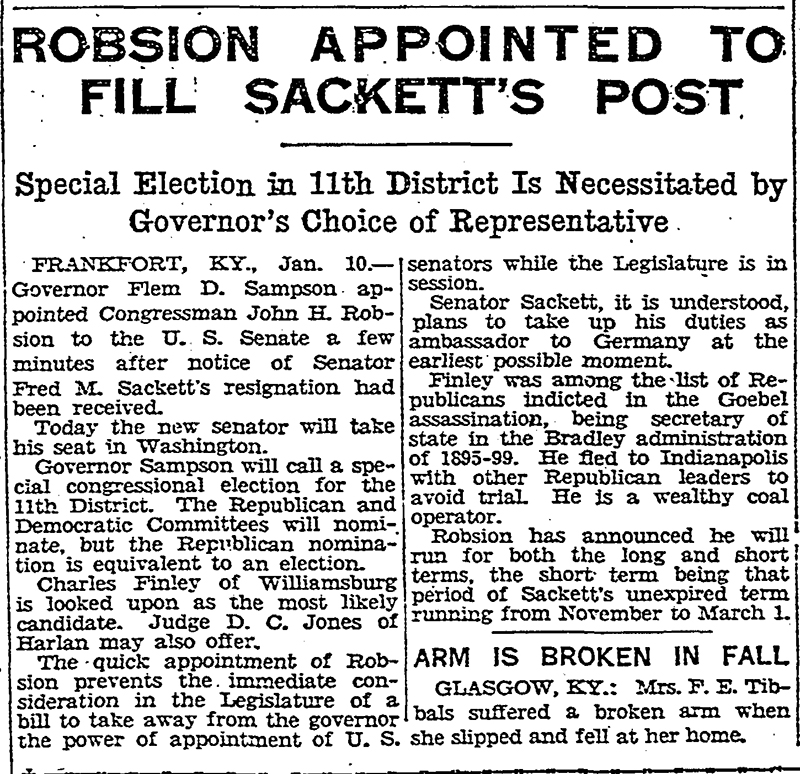
Stein drones away: “In 1930 the Republican-controlled House of Representative, in an effort to alleviate the effects of the… anyone? anyone? … the Great Depression … passed the … anyone? anyone? … the tariff bill, the Hawley-Smoot Tariff Act which … anyone … raised or lowered … raised tariffs in an effort to collect more revenue for the federal government” (“Ben Stein as Economic Teacher in ‘Ferris Bueller’s Day Off’”)
The scene was both hysterical and historical. With a name as boring as Smoot-Hawley and on a topic equally tedious as tariffs, it’s easy to see why students might fail to understand the significance. However, politically speaking, the Smoot-Hawley Tariff Act proved one of the major turning points in our American history.
United States history is filled with contentious topics, from states’ rights to income taxes to tariffs. In 1930, the Republican-controlled US Congress passed the highest tariff rate legislation of the twentieth century—the Smoot-Hawley Tariff Act. Even President Herbert Hoover, himself a Republican, initially opposed the bill but bowed to pressure to sign it rather than veto it. The final bicameral conference version of the bill passed the US House and Senate in June 1930 and was subsequently signed by President Hoover.
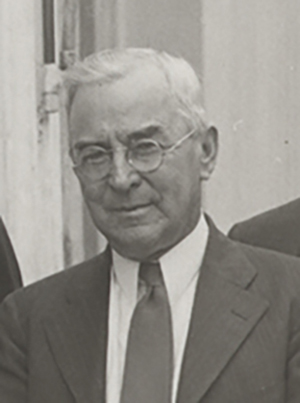
According to many economic historians, the repercussions of this protectionist legislation worsened the Great Depression, leading other nations to reciprocate, increasing their tariffs against American-made agricultural and industrial products. Other analysts state that the results were more complicated than that view allows (Anthony O’Brien, “Smoot-Hawley Tariff,” Economic History Association)
In 1930 in terms of international trade, the United States was a creditor nation, exporting more than it imported and owing less to others than other nations owed it. However, on Tuesday, October 29, 1929, the US stock market had crashed. Speculation, buying on margin, and leverage had led to the inevitable fall of stock prices that had been ballooning towards a dangerous precipice. The Great Depression was well underway.
In 1930, during the 71st US Congress, Kentucky’s Sixth US House of Representatives District was composed only of the Northern Kentucky counties of Boone, Campbell, Carroll, Gallatin, Grant, and Pendleton. In fact, the Sixth District had assumed that configuration nearly forty years earlier, in 1891. Quebec-born Judson L. Newhall (1870–1952), a Republican, represented the Sixth Kentucky in 1930. Newhall had defeated Democratic candidate Brent Spence (1874–1967) in the 1928 election (Robert W. Stevie, “Congressional Districts,” in Paul A. Tenkotte and James C. Claypool, eds. The Encyclopedia of Northern Kentucky [ENK] Lexington: University Press of Kentucky, 2009: 214-220; “Newhall, Judson L.” ENK, 649); Jack Wessling, “Spece, Brent,” ENK, 848).
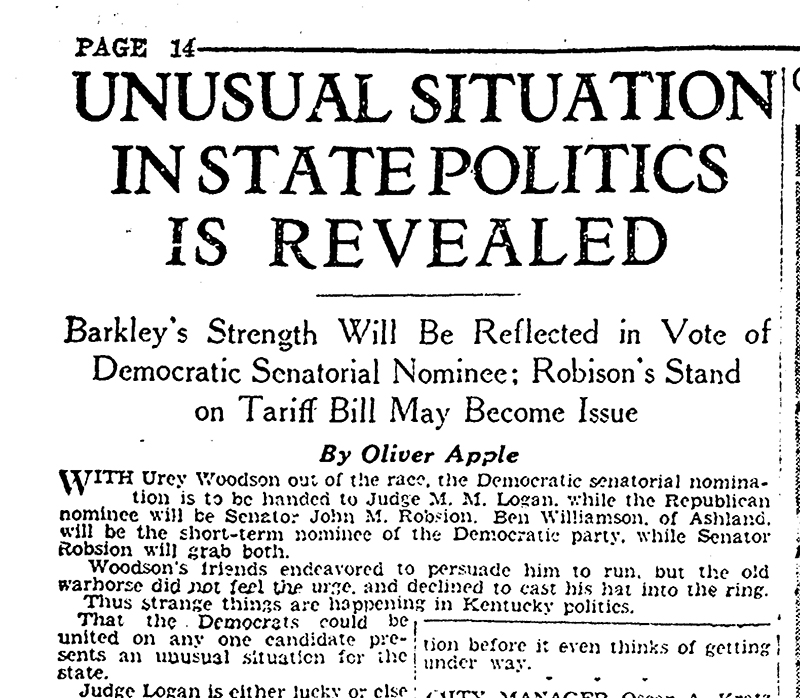
Contrary to the mistaken theories that somehow paint Northern Kentucky as always having been a stepchild of Kentucky, the region was actually a political powerhouse in the late-nineteenth and early-twentieth centuries. Kentucky Post political reporter Oliver Apple knew this fact well. His political reporting was usually right on-the-mark. In June 1930, he stated clearly that the “Sixth District usually holds the balance of power in state elections.” In fact, the Sixth District, he related, “in the past three elections has shown Republican majorities for President, Congress, senator, and governor” (Oliver Apple, “Unusual Situation in State Politics Is Revealed,” Kentucky Post, June 22, 1930, p. 14).
The US Senators from Kentucky in the 71st Congress were Democrat Alben W. Barkley (1877–1956), Republican Frederic M. Sackett (1868–1941), Republican John Marshall Robsion (1873–1948), and Democrat Ben N. Williamson (1864–1941). Four US Senators??—what’s the deal? The two original senators serving Kentucky in the 71st Congress were Barkley and Frederic M. Sackett. Sackett resigned the Senate in January 1930 to accept President Hoover’s offer as US Ambassador to Germany, serving there during the important years from 1930 to 1933.
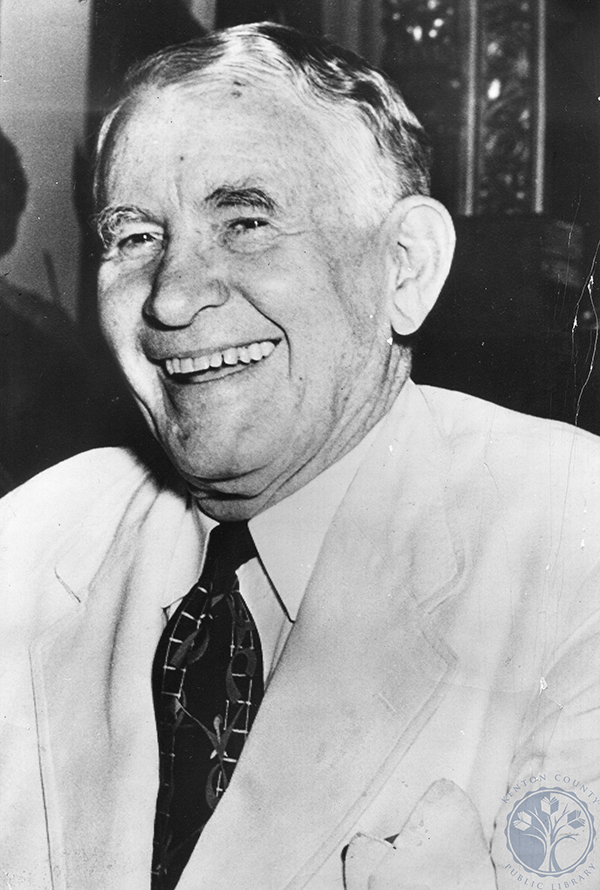
In the interim period before a new election could be held in November 1930, Kentucky Governor Flem Samson (1875–1967) appointed Robsion as US Senator. Born in Bracken County in Northern Kentucky, Robsion was a friend and supporter of Governor Samson. On the other hand, Senator Sackett had backed Samson’s opponent in the Republican primaries in 1927, so the governor was not exactly unhappy to see Robsion vacate his US Senate seat. In a then-divisive Republican party in Kentucky, Robsion was seen as more likely to win the Senate seat for Kentucky in the upcoming November 1930 election than Sackett. However, that hope did not actually come to fruition, as Robsion lost the election for the final four months of Sackett’s remaining term of office to Democrat Ben Mitchell Williamson (Paul L. Whalen, Profiles of Kentucky United States Senators, 1792–Present Morley, MO: Acclaim Press, 2020, 230-248).
At the time of the passage of the Smoot-Hawley Tariff Act in March 1930, US Congressman Judson Newhall represented the Sixth Kentucky, and Barkley and Robsion served as Kentucky’s two US Senators. Where did these politicians stand in terms of the Smoot-Hawley Tariff?
The Kentucky Post, published in Covington, followed Senator Barkley’s opposition to the tariff. On June 8, 1930, reporter Oliver Apple noted that Barkley “has camped on the trail of the tariff,” rising to be “one of the champions of the people in the discussion at Washington.” Apple explained that the Senator had “made a hit with the opponents of the tariff,” but cautioned that he needed to realign himself with certain Democratic elements of the party in the Sixth District, where he “took a trimming in the last election” (Oliver Apple, “Women’s Political Group Is Feted Right Royally,” Kentucky Post, June 8, 1930, p. 16).
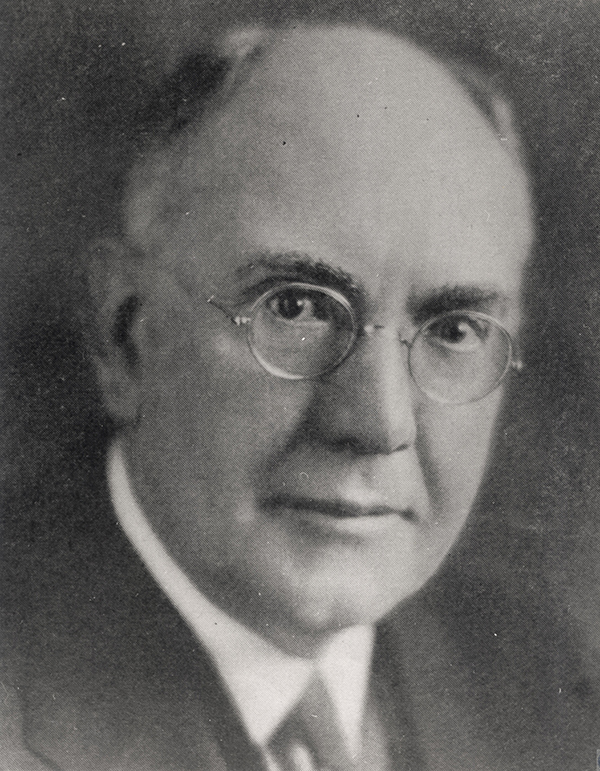
Senator Robison’s support of the tariff was crystal clear. In terms of the upcoming November 1930 election, the Kentucky Post again predicted it accurately. In a June 22nd article, reporter Oliver Apple noted that Senator Robison’s support of the tariff would possibly lose him the election, as it was “likely that the national Democratic headquarters will make a play for the big independent vote of the Sixth District, using the tariff as the issue.” Indeed, Robsion would lose in November 1930. Making yet another correct prediction, Apple noted that Brent Spence would probably earn the nomination of the Democratic party for the Sixth District and that “Spence will line up with his party on the tariff issue, and he will find favor with the 15,000 independents who show their strength in general elections.” Indeed, Spence would win the election against Judson Newhall, who has been a supporter of the traiff (Oliver Apple, “Unusual Situation in State Politics Is Revealed,” Kentucky Post, June 22, 1930, p. 14).
In terms of historical results, Robsion and Newhall supported the Smoot-Hawley Tariff, partially resulting in their losses in November 1930. On the other hand, Barkley and Spence’s opposition to the tariff proved more prescient, and indeed, more in line with many economists’ concerns:
“A thousand economists signed a petition, drafted by a Chicago economist, and future U.S. senator, Paul Douglas, that implored the president to veto the tariff. ‘Poor Hoover wanted to take our advice,’ Paul Douglas mused, but he could not bring himself to break with his own party’s congressional leadership. Ignoring the experts, Hoover signed the tariff on June 17, 1930 … [The tariff did not] “sit well with the voters. In 1932 they turned the majority in both houses over to the Democrats by large margins” (“The Senate Passes the Smoot-Hawley Tariff,” United States Senate)
A new era was on the horizon. The New Deal Democrats, US Representative Brent Spence and US Senator Alben Barkley, became prominent national politicians from Kentucky. And Brent Spence would bring many federal funds and projects to Northern Kentucky, from floodwalls to expressways to the IRS Center and to the regional Cincinnati/Northern Kentucky International Airport.
See also: Our Rich History: Brent Spence — the man, not the span; a congressman for 32 years
Paul A. Tenkotte, PhD is Editor of the “Our Rich History” weekly series and Professor of History at Northern Kentucky University (NKU). He can be contacted at tenkottep@nku.edu. Tenkotte also serves as Director of the ORVILLE Project (Ohio River Valley Innovation Library and Learning Enrichment). For more information see orvillelearning.org









